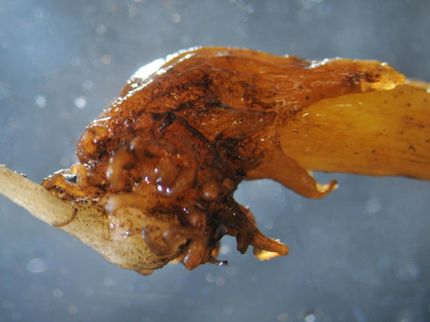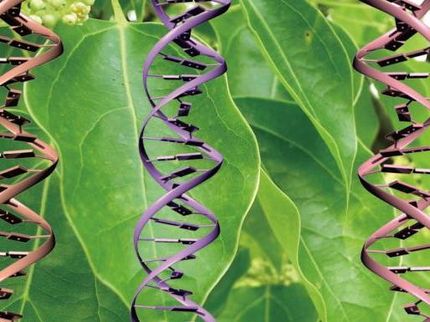Researchers find gene linked to birth defects
An international group of researchers has identified the genetic cause of an inherited condition that causes severe foetal abnormalities. The work, co-led by geneticists at the University of Leeds, together with colleagues from institutes and universities in Paris, Rome and San Diego, should allow couples at risk of conceiving babies with the profoundly disabling Meckel-Gruber and Joubert syndromes to be identified beforehand through genetic screening.
Their findings, which show how the disease gene stops cells' finger-like antennae or 'cilia' from detecting and relaying information, may ultimately lead to treatments for more common related disorders, such as spina bifida and polycystic kidney disease. The paper is published in Nature Genetics.
"By understanding the science behind this relatively rare condition, we can gain insight into other developmental conditions that are less serious but far more frequent," said University of Leeds researcher Professor Colin A. Johnson. "Spina bifida, for example, is one of the most common birth defects, affecting in one in every 1000 children."
Meckel-Gruber syndrome and Joubert syndrome are part of a wider family of disorders known as 'ciliopathies' – so-called because the cilia are not working as they should and do not respond properly to signals.
This lack of communication can prevent the neural tube from developing correctly in growing embryos, leading to abnormalities in the brain. Affected embryos can also develop abnormalities in the eyes, extra fingers or toes, and multiple cysts in their kidneys. These defects are often only picked up on a 12 week ultrasound scan.
To find the gene responsible for Meckel-Gruber and Joubert syndromes, the researchers examined DNA from families with a history of the disorder, from skin cells donated by patients, and from cells grown in the laboratory. They also studied zebrafish, which have very visible embryos.
The work identified a previously unknown gene – TMEM216 – as a cause of Meckel-Gruber and Joubert syndromes. They also showed that the faulty TMEM216 gene stopped cells from making a protein that is needed for signalling.
Because Meckel-Gruber and Joubert syndromes are recessive genetic disorders, only couples who both have a copy of the disease gene are at risk of conceiving babies with these birth defects. The condition is more common in certain close-knit populations where the gene has been passed down from generation to generation. These include families of Ashkenazi Jewish origin.
"Accurate genetic testing for TMEM216 will be particularly important for families throughout the world that have a history of ciliopathies caused by mutations to this gene," said Professor Johnson.
"Now that we have identified a gene that causes Meckel-Gruber syndrome and Joubert syndrome, the role of particular signalling pathways whilst the embryo is developing can also be more clearly understood," he added.
Original publications: "Mutations in TMEM216 perturb ciliogenesis and cause Joubert, Meckel and related syndromes"; Nature Genetics 2010.
Most read news
Topics
Organizations
Other news from the department science

Get the life science industry in your inbox
By submitting this form you agree that LUMITOS AG will send you the newsletter(s) selected above by email. Your data will not be passed on to third parties. Your data will be stored and processed in accordance with our data protection regulations. LUMITOS may contact you by email for the purpose of advertising or market and opinion surveys. You can revoke your consent at any time without giving reasons to LUMITOS AG, Ernst-Augustin-Str. 2, 12489 Berlin, Germany or by e-mail at revoke@lumitos.com with effect for the future. In addition, each email contains a link to unsubscribe from the corresponding newsletter.




















































